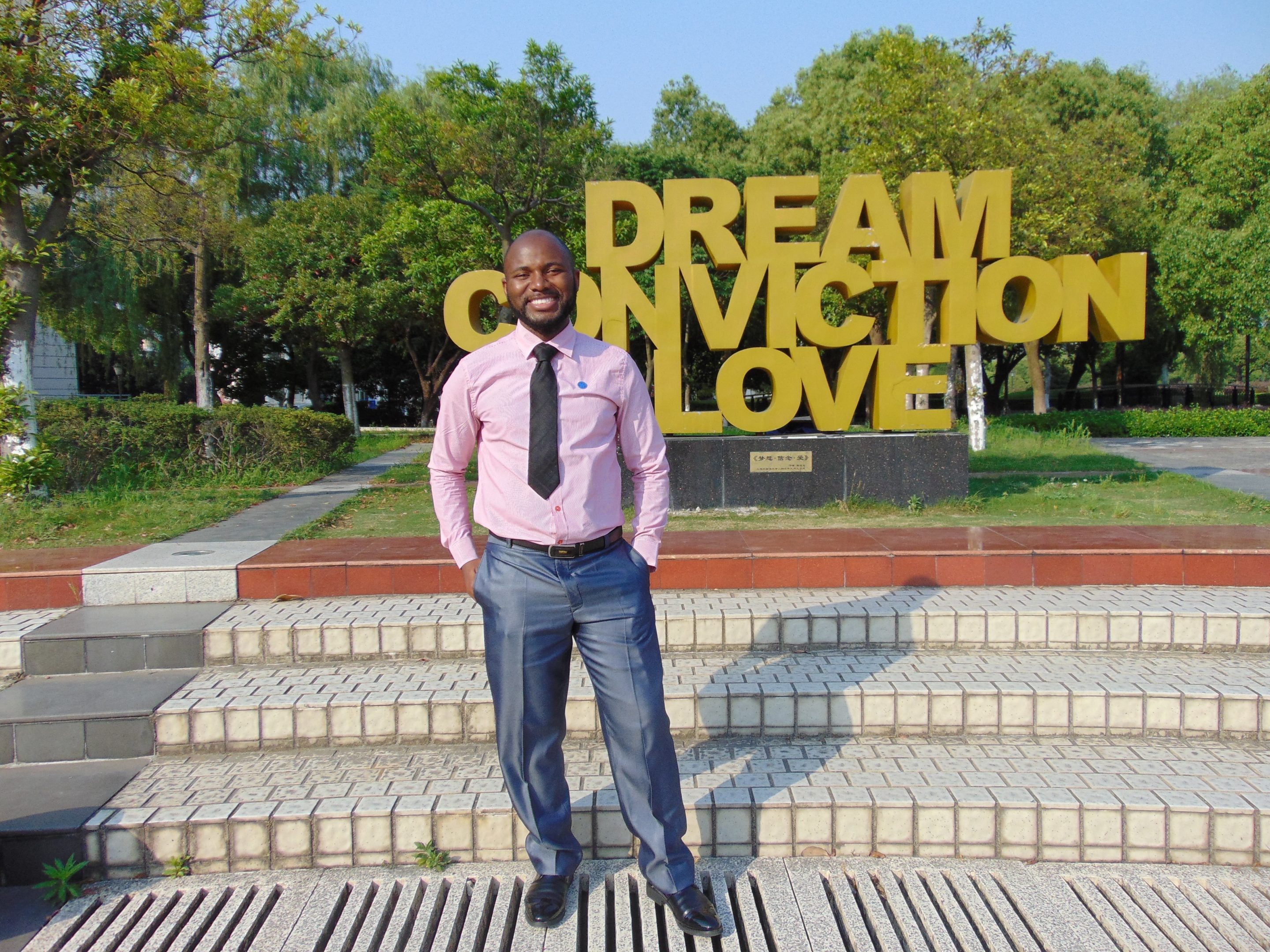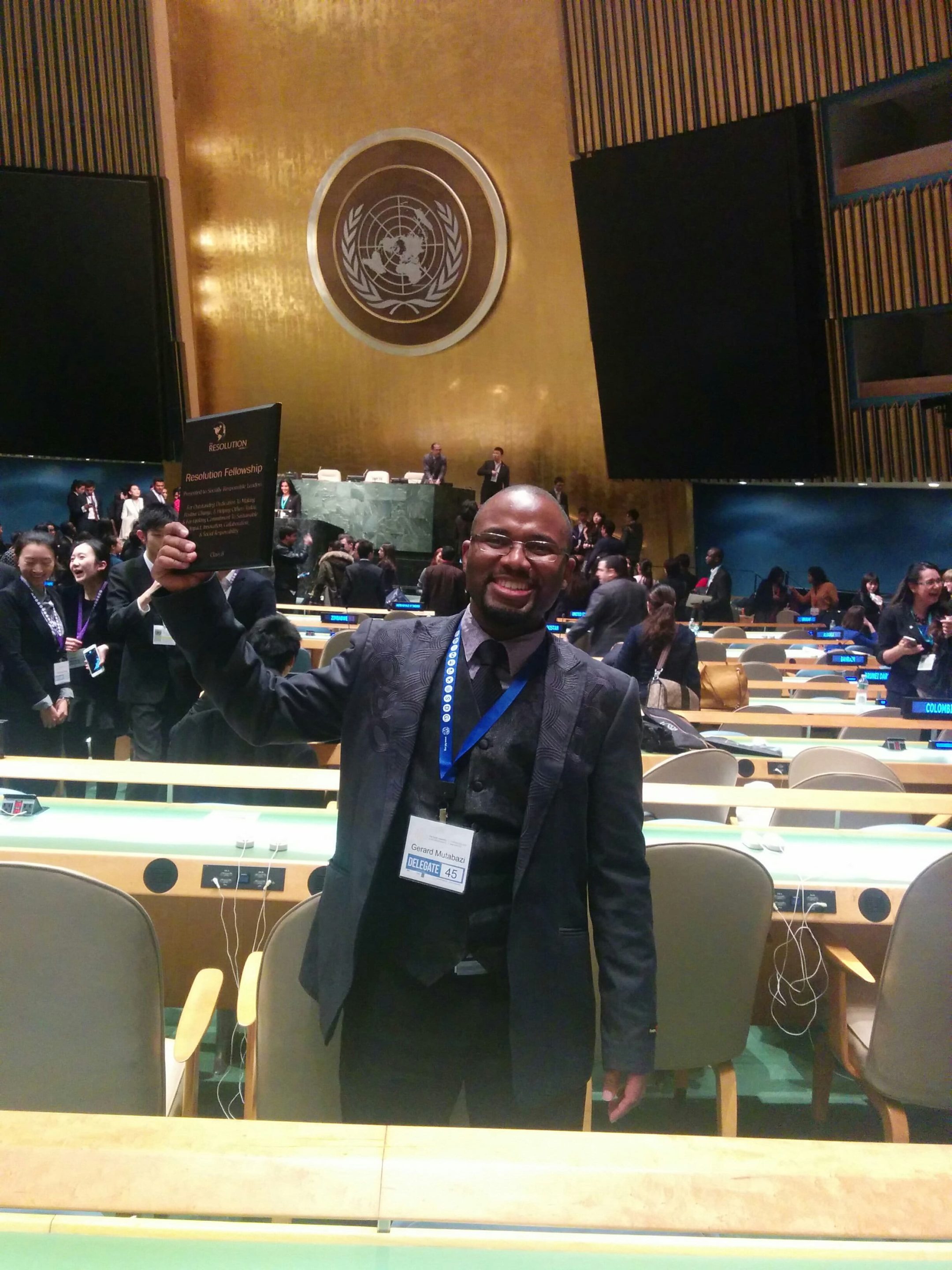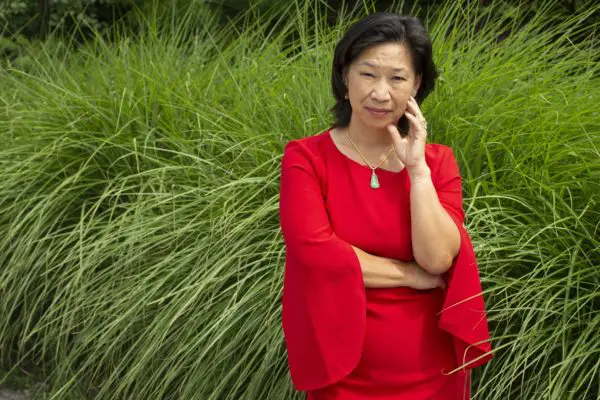
© Courtesy of Gerard Mutabazi
A former Congolese refugee, Gerard Mutabazi touches on his own refugee story, why it’s important to him to advocate for refugees, and how Canada can show their support to more than 79 million displaced persons worldwide.
For many, becoming a refugee is one’s only hope to a better, safer future, and it can be a journey full of uncertainty and anxiety. Being a refugee is a temporary status, a state of existence that refugees hope to leave behind as they find a safer home.
In Canada, refugees have the highest rate of citizenship among any immigration categories, showing their commitment to Canada and its people in remarkable numbers. For former refugees like Gerard Mutabazi, becoming a refugee advocate by showing Canada how important it is to help refugees was a natural next step. We sat down with Gerard – a former Congolese refugee and community leader – to ask him why it is so important for him to say “#IAmAnAdvocate” for refugees.
Gerard, you have an incredible story which touches on the hardships of refugees and what it’s like to come to Canada. Can you tell us about your experience?
I was born in Uvira in the Democratic Republic of the Congo (DRC). My family and I left the DRC in 1998 to seek refuge in Kigoma, Tanzania due to the war. I am the fourth of eight children. Life as refugees in Tanzania’s Lugufu camp was very hard because we only relied on the support of UNHCR and other organizations.
At times we would go hungry the whole day in order to have something to eat in the night because the food portion sometimes wouldn’t last for the month.
After a couple of years in the camp, my parents decided to make the journey down to South Africa in search of a better life. We arrived in Cape Town, South Africa in 2002 and it was there where we had the chance to build a future. Upon our arrival, we registered with South African authorities as refugees. Life in South Africa was still a challenge because the whole family was relying on my dad’s income as a security guard. In May of 2008, because of xenophobic events in South Africa, we lost everything and became fresh refugees in a reception centre. One organization was providing refuge to those fleeing from their lives because some South Africans were looting, hurting and killing refugees and migrants. This was a very scary moment to see that a place that we had called home for several years was now rejecting us.
During our time in South Africa, my parents applied for resettlement to Canada as refugees and we were patiently waiting for that faithful day. During these crazy moments of uncertainties, the immigration process was finalized and we were resettled to Edmonton, Canada as government sponsored refugees in September of 2008. Life was never the same again!
What inspired you to act and advocate for refugees?
My personal experience as a former refugee and the continuous suffering of refugees around the world is what inspired me to act and be an advocate for refugees. Some people in Canada and around the world have the perception that refugees are burdens, which is a very false perception. Some people think that refugees just wake up one day and decide to voluntarily leave their countries and homes. The lack of knowledge and understanding among some people of what is a refugee, or who are refugees, is the reason why I’m a refugee advocate. We must understand that refugees leave their countries due to their lives and that of their families’ being in danger. Then, we can start talking about solutions and best ways to support refugees. It is time that the developed countries around the world stand up and do their share in helping refugees within their countries and around the world.

© Courtesy of Gerard Mutabazi
What kind of work have you done to support refugees in Canada?
Over the years, I have volunteered and worked with refugees in the City of Edmonton and have traveled in Canada on youth missions. I used to volunteer for Edmonton Mennonite Centre for Newcomers in their high school homework club helping refugees with English and Mathematics. In February of 2014, together with fellow young people, we founded Diaspora African Youth Association (DAYA) to encourage young Africans to give back to the society and also support each other through education, volunteerism and career opportunities. We placed volunteers at Catholic Social Services’ homework club helping with English and Mathematics. We also partnered with Action for Healthy Communities where our youth would be MCs and volunteers at their events for refugees and migrants. It was the greatest honor to serve as President of DAYA and help oversee such community involvement supporting refugees.
In February of 2016, I led a DAYA delegation to New York for Youth Assembly at the United Nations and entered in a Social Venture Competition put together by Resolution Project. We were among three winning teams and the only one from Canada. It was both a proud and humbling moment. We went on to establish Youth Employment and Integration to support refugees and migrants with education and volunteer opportunities. Supporting refugees in their education has always been close to my heart because education is what many wished for many in refugee camps or it’s what the parents longed for their children.
It has been the greatest honour to support refugees and migrants with the education journey in Edmonton over the years. In September of 2016 I was invited by Global Affairs Canada to be part of the Canadian delegation for the United Nations General Assembly and also attend the Leaders’ Summit on Refugees. It was an honour to be in a room of world leaders to help about what their countries have done and will continue to do for refugees around the world.
At the heart of the #IWasARefugee campaign is the idea that being a refugee is a state of existence – it isn’t someone’s entire identity or being. How have you seen former refugees in your life succeed and thrive once they are resettled in a country like Canada, where they are safe from the violence and persecution that they may have faced in their home country?
Whether it is in Edmonton or across Canada, I have seen firsthand former refugees achieving higher education, finding jobs that they desire, and contributing to the society which greatly supported them. When it comes to education, I have always encouraged refugees and former refugees to never give up no matter how long the journey looks at times. For example, some of them have decided to learn English at the age that others are either entering or graduating from college or university.
I have seen former refugees who went from struggling with a course to graduating with diplomas and degrees in business, social work, nursing and psychology. And the good thing has been that they have always given back through volunteering with the education and knowledge.
Also, some of the former refugees I worked with in DAYA went on to lead summer camps for Action for Healthy Communities. Whether it’s the former refugees I have worked with or just others in the community, I am always proud of what high achievers they are in doing their part in transforming lives and communities. As someone who also longed for education while a refugee, seeing former refugees going through two and four years of programs – and often without the formal high school education – has been very inspiring to watch and support. They have been members of the community through their rightful jobs and volunteer opportunities.
As a refugee advocate, what support, community and help do you think is integral for those who are resettling in Canada?
As some refugees arrive in Canada without or little knowledge of English or French, language support is of utmost important when it comes to refugees resettling in Canada and building a home here. Communication is very important for people to express themselves, study, work and to seek other support as required. Support in seeking a house for rent and grocery shopping are also integral in refugees arrive because they don’t know the system and how things faction around here. From personal experience, resettlement agencies in Edmonton and across Canada do such a great job at this end. The house rental also goes with educating refugees about how and when to pay bills. The first days and weeks upon arrival of refugees are very crucial for them to know where the basic services are and how to access them. Other support which are integral to refugees is knowing about the health system, community social events, school registration process and metal support. As I also have experience working as a bank teller in Edmonton, educating refugees about banking system and money matters are very crucial to ensure their smooth transition and integration in society.
Canada has a strong history of supporting refugees. What is the importance of bringing refugees issues to the forefront of the conversation, in Canada and worldwide?
As an advocate, bringing refugee issues to the forefront of the conversation whether in Canada or around the world is very important in order to know how best to support them. Many refugees’ lives are in danger around the world and helping them shouldn’t matter which political ideology one carries. As humans, helping refugees is the right thing to do and it’s our obligation to do such. Bringing refugees issues to the forefront help to educate people, businesses, organizations and leaders about the challenges and how they can do their parts in addressing these challenges.
As an advocate, bringing refugee issues to the forefront of the conversation whether in Canada or around the world is very important in order to know how best to support them.
Refugees are not burdens – they are people who flee for their lives to look for a place to belong, build a future and contribute to the society. And bringing refugee issues to the forefront in Canada and around the world helps to further educate people that refugees don’t just wake up on a beautiful morning and decide to leave their homes. These are conversations to be having in order to find durable solutions and it can only happen when it’s at the forefront.
This year, UNHCR is celebrating its 70th anniversary. For the past seven decades, the UN Refugee Agency has been helping and supporting refugees and other displaced people. But in 2019, more than 79 million people remain displaced around the world. When you hear these statistics about the scale of the refugee emergency, how do you feel?
These are very disheartening statistics which have great implications on millions of lives around the world. It is very disappointing to see that things continue to get worse instead of getting better. There are still many conflicts active around the world and more continue to breakout. Every now and then hundreds and thousands of people flee their homes to seek for refuge elsewhere and often they are not welcomed with open arms.
These are not just statistics but people’s lives at risk.
World leaders and inter-governmental organizations need to come together in unity to talk about durable solutions for the millions of displaced people around the world. We cannot have these amounts of people displaced and yet countries not willing to open their borders or welcome refugees. These statistics are more reasons to continue the work of advocacy and calling citizens and world leaders to action.
What would you like to tell the Canadian public about the importance of helping refugees?
Just as countries invest in other migrants (whether foreign workers or international students), I believe countries should invest equally in refugees. When countries help refugees, they are not just helping refugees, but helping their own country. Once finished school or when they start working, refugees become taxpayers, community leaders, volunteers and proud Canadians.
Across Canada and around the world, refugees are proving on a daily basis that they’re not burdens but are contributing members of the society.
I am an advocate who believes that citizens and world leaders should do their parts in helping refugees and I like to point out to them of the long-term benefits that refugees bring to their new home. This is why that my Master’s thesis was about Socio-Economic Implications of Refugee Integration. With so much negativity about refugees around the world, I like pointing out how refugees are beneficial socially and economically down the road and some of them even right away upon resettlement. Refugees help to build safer and inclusive communities and contribute economically through entrepreneurial or employment.




